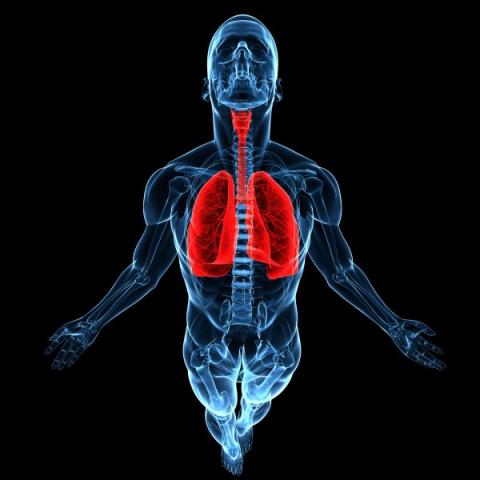Get lung cancer aware for November

Lung cancer is one of the most common cancers among both men and women in Northern Ireland, with around 900 new cases diagnosed each year, but it is also one of the most preventable forms of cancer, so during Lung Cancer Awareness Month the Public Health Agency (PHA) is calling on smokers to take the decision to give up their habit and start to enjoy the benefits of a smoke-free lifestyle.
Gerry Bleakney, Strategic Lead for Tobacco Control with the PHA, said: “Smoking cigarettes is the biggest risk factor for lung cancer and is responsible for around 90 percent of all cases. If you smoke just one cigarette a day, you are three times more likely to get lung cancer than a non-smoker.
“Using other types of tobacco products such as cigars, pipe tobacco and chewing tobacco can also increase your risk of developing cancer.
“However, you can reduce your risk by quitting now, no matter how long you have been smoking. Every year that you do not smoke, your risk of getting serious illnesses such as lung cancer will decrease. After 10 years of not smoking, your chances of developing lung cancer fall to half that of a smoker.
“Taking the decision to quit now will improve your health and reduce your chances of premature death from lung cancer and other smoking-related illnesses. It will also have a positive health and emotional impact on your family and loved ones, so it’s a win-win for everyone.
“Smokers should be aware of the symptoms of lung cancer and if they are experiencing any of these symptoms, they need to see their GP urgently. Early diagnosis of lung cancer is important because early treatment can be more effective and survival can be improved.”
Symptoms may include:
- a persistent cough
- a sudden change in a cough that you have had for a long time
- unexplained weight loss
- breathlessness
- chest pain – this is usually intermittent (stop-start) and is often made worse when breathing or coughing
- coughing up blood-stained phlegm.
“Quitting is the single most important thing you can do for your health and if you stop for 28 days or more, you are five time times more likely to stop for good. However, it is not easy and different approaches will work for different people. While some people might be able to do it with very little support, others find that planning ahead and making use of the free Stop Smoking Support Services that are available can really help them make the decision permanent.
“If you quit and then relapse, accept it, work out why it happened, and focus on how you can avoid it in the future. It takes several efforts for many people to quit for good, but if you are determined, you will do it. Last year thousands of people decided to stop by using the PHA’s Stop Smoking Services, and many others quitted on their own. ‘Be prepared’ is the motto for success,” Gerry concluded.
For more information and useful tips to stop smoking, visit the PHA’s ‘Want 2 Stop’ website at www.want2stop.info and use the online chat service or order a ‘Quit Kit’ free of charge. Alternatively, you can contact the Smokers’ Helpline on 0808 812 8008, text the word ‘Quit’ to 70004, or check out the Want 2 Stop Facebook page.
There are also over 600 free stop smoking specialist services across Northern Ireland in pharmacies, GP surgeries, hospitals, communities and workplaces that can help with your quit attempt.
